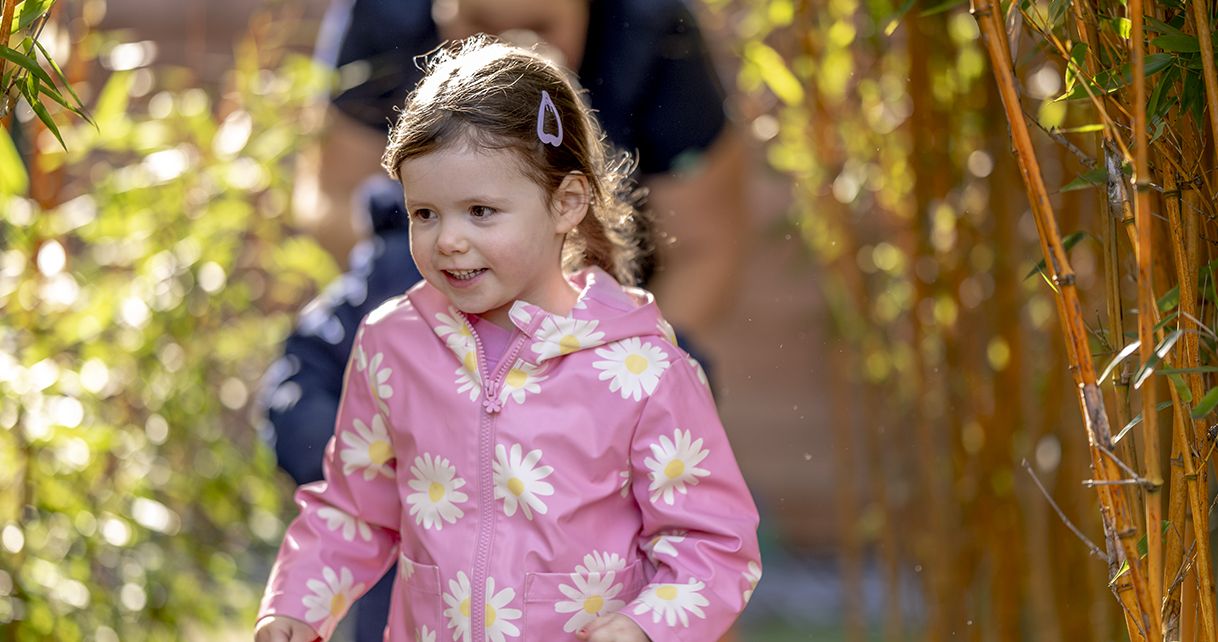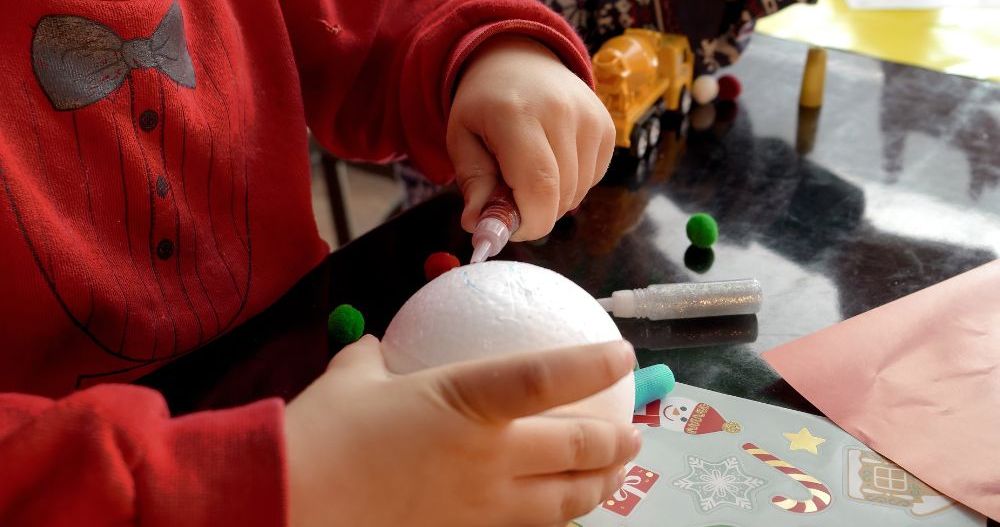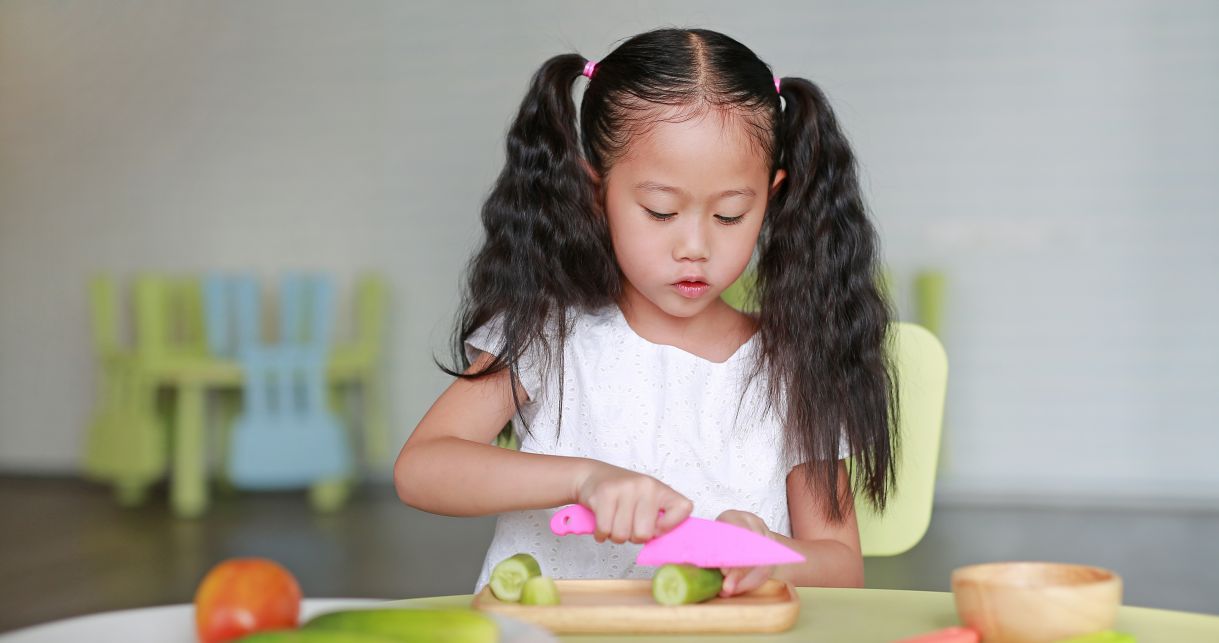5 min read
5 min read
5 min read
5 min read
Communication is an important part of a child’s development. It is incredibly exciting when children begin to string sentences and actively participate in conversations with their parents, caregivers and other children. A rich vocabulary allows children to communicate more effectively and tell those around them how they feel.
Research tells us that the number of words a child hears and can speak by the age of three is a strong predictor of later language development. Studies also show that teaching vocabulary is one of the most effective ways to help children build their language skills. This is why Bee Curious has a significant focus on direct vocabulary teaching and modelling.
A well-developed vocabulary is essential for communication, reading, and understanding and is an effective way to boost your child’s future academic success.
Children with a broad vocabulary can better express their thoughts, understand instructions, and engage in meaningful conversations. Research also shows that a strong vocabulary in early childhood can positively impact literacy skills later in life. The more words a child knows, the more easily they can make sense of the world around them.
Reading aloud is a powerful tool for language development.
Choose books with varied vocabulary and take the time to discuss new words as they appear. Stories are ideal for supporting children’s vocabulary as they often contain a lot of rare and rich words children might not come across in day-to-day conversation. Use pictures and context to help explain meaning. For example, if you come across the word "exhausted," you might say, "Exhausted means you are feeling very tired." Encourage your child to ask questions about new words and make connections to their own experiences. For instance, if a character in a book is described as "delighted," ask, "Can you think of a time when you felt delighted?"
For more storytelling top tips check out our blog.
Children learn language by listening to the adults around them. By naturally incorporating new and descriptive words into your speech, you expose children to a broader vocabulary. For example, instead of saying, "You look tired," you might say, "That was a big yawn, Alfie! Are you exhausted today?" Similarly, describing everyday experiences in detail helps children absorb new words. Instead of saying, "Let's go outside," try, "Let’s step outside into the fresh air and feel the cool breeze on our faces."
Prompt children to express themselves with descriptive words by asking open-ended questions. Instead of yes/no questions, try ones that encourage thoughtful responses, such as, "How do you feel?" or "Can you describe what you see?" This encourages children to use a wider range of vocabulary in their responses.
You can also play word games that involve describing objects, emotions, or actions. For example, ask your child to describe their favourite toy without saying its name, helping them think of alternative words and phrases.
Repetition is key to learning new words. Look for opportunities to use and reinforce vocabulary in different contexts. For example, after introducing the word "exhausted," you could later ask, "I think the three little pigs are exhausted. Can you remember what exhausted means?"
Songs, rhymes, and poems are fantastic for vocabulary development. The repetitive nature of songs helps reinforce language patterns, while the rhythm and melody make learning fun and engaging. Singing nursery rhymes or making up silly songs with new words can help children remember them more easily. For example, singing "The Itsy Bitsy Spider" introduces words like "spout," "washed out," and "dried up," all of which expand a child's understanding of language.
Imaginative play provides wonderful opportunities for language growth. Encourage your child to create stories, act out scenarios, and use descriptive language while playing. Whether they are pretending to be a chef, a doctor, or a shop assistant, introduce relevant vocabulary that enhances their understanding of the world. For example, if they are playing in a restaurant, introduce words like "menu," "ingredients," "delicious," and "order."
One of the simplest yet most effective ways to build a child’s vocabulary is through everyday conversation. Talk to your child about what you are doing, ask for their opinions, and encourage them to express their thoughts. Whether you are cooking, shopping, or taking a walk, there are endless opportunities to introduce new words and concepts. The more exposure a child has to language, the more confident they will become in their communication skills.
Tip: Remember that children need plenty of thinking time to process what you’ve said. If you ask your child a question, aim to give them at least 10 seconds to answer before following up with another comment or question.
Within the Bee Curious curriculum, children are introduced to new vocabulary and their definitions, which is carefully planned and delivered in a fun and engaging way. They are supported in developing listening and attention skills.
Within the key areas of discovery, there are three main tools that the Bee Curious educators use to support the development of communication and language, these are:
Visit the Bee Curious page to find out more.
By intentionally introducing new words and providing meaningful opportunities for children to use them, you are helping to build a rich vocabulary that will support their communication skills and future learning success. With a little curiosity and creativity, everyday moments can become valuable language-learning experiences!
by Busy Bees
Published: 14/03/2025
Share Blog

by Busy Bees 26/01/2026
10 min read

by Busy Bees 01/12/2025
5 min read

by Busy Bees 01/12/2025
5 min read

by Busy Bees 27/11/2025
6 min read

by Busy Bees 25/11/2025
7 min read